The Coen Brothers: Ranking Every Film From Worst To Best
18 movies which really tie the room together.
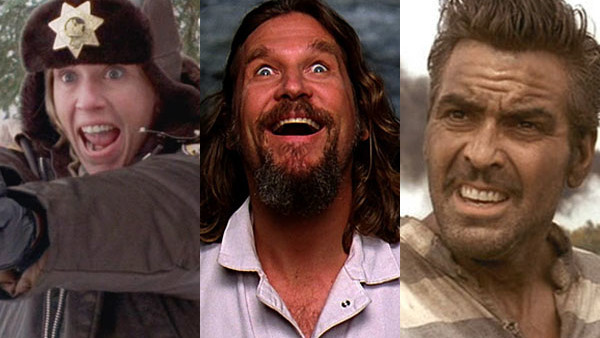
It's quite appropriate that the Coen Brothers' latest, The Ballad Of Buster Scruggs is a unique entity: it comes from a filmmaking duo who have spent upwards of 30 years making films quite unlike anyone else's. Though we can't be certain on the "box office" of any Netflix release, there is without doubt something very special about such a film even getting a release in 2018.
The notion of director as auteur would seem to have largely fallen by the wayside in recent years, so far as the Hollywood power structure is concerned at least. So many of the most unique, visionary filmmakers of the last few decades have struggled to get films made without significant concessions to the studios. Some would appear to have all but given up.
Not so with Joel and Ethan Coen. While they are by no means the only directors still able to make intensely personal films on mainstream-level budgets, they are among the few to have done so consistently, for the duration of their often remarkably prolific career. With only a few minor exceptions, each film is distinctly their own, exploring similar existential themes with a uniquely sardonic, off-the-wall sensibility. But which is best?
18. The Ladykillers (2004)
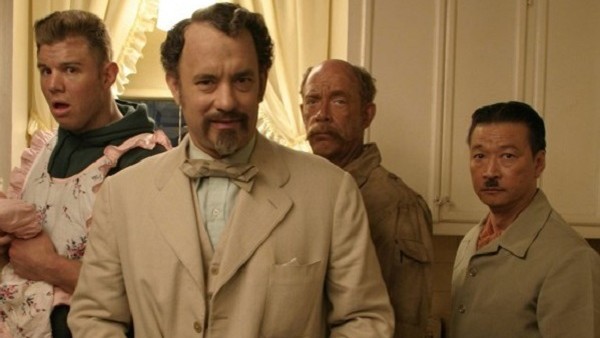
It perhaps stands to reason that the weakest work of a filmmaking duo as unique and personal as the Coen Brothers would be a film that isn't truly of their own creation. Remakes of time-honoured classics are always a touchy area, even in such revered hands. However, The Ladykillers doesn't only pale in comparison to the original 1955 Eton comedy with Alec Guinness, it also falls short of the Coens' usual standard; though perhaps not so significantly as some accounts would have you believe.
Tom Hanks takes the lead as the silver-tongued dandy Goldthwaite Higginson Dorr, who rents a room in the home of an elderly woman (Irma P Hall) in order to surreptitiously tunnel into the vault of a nearby casino, with the assistance of a suitably oddball crew: JK Simmons' businesslike demolitions expert, Tzi Ma's taciturn tunneler, Ryan Hurst's mentally challenged powerhouse football player, and Marlon Wayans' potty-mouthed casino janitor.
Naturally, things don't quite go according to plan. The key problem with The Ladykillers is that it doesn't take the Coens out of their comfort zone; it just feels like the filmmakers are coasting by, doing what they already know how to do. With its deep south setting and largely bluegrass-based score, it's reminiscent of O Brother, Where Art Thou?, and its central plot device of a big score gone wrong has come up time and again in their work, all the way back to their first film Blood Simple.
Its comedic elements, however, are unusually broad for a Coens film, notably with Wayans' over-reliance on profanity, Simmons' IBS played for bog-standard (pun intended) toilet humour, and Hall's cartoonish displays of strength whilst chastising the men. Even so, The Ladykillers is still a perfectly watchable, entertaining film. It's just that we tend to expect a bit more from the Coens than simple entertainment.
17. Intolerable Cruelty (2003)
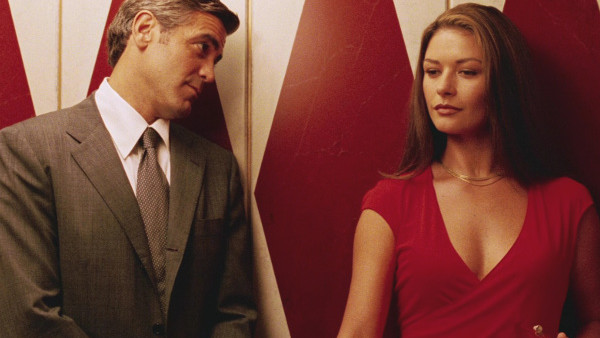
Once more, we see the Coens at less-than full power working with material that has the fingerprints of others all over it. Originally written by the brothers as a script for Ron Howard to direct with Hugh Grant and Julia Roberts, Intolerable Cruelty spent some time in development going through various rewrites, before coming full circle and seeing the Coens themselves hired.
The result is an odd mix of the Coens' signature style with a largely conventional romantic comedy formula; not inherently a bad thing, but perhaps not what the most ardent admirers of the filmmakers were hoping for at the time. George Clooney notches up his second leading role with the Coens as a hotshot divorce attorney, famed for creating the ultimate prenuptial agreement guaranteed to leave the husband destitute, who finds himself at risk from his own creation when he falls for the wiles of serial divorcee Catherine Zeta-Jones.
In any hands, Intolerable Cruelty would have been as amiable and inoffensive as any big budget rom-com; but with the Coens at the helm, there's more of an anachronistic golden age Hollywood aesthetic at play. It's appropriate, then, that Clooney has never been more Cary Grant-esque, although he does get a typical Coens quirk in his obsession with the whiteness of his teeth.
16. Burn After Reading (2008)
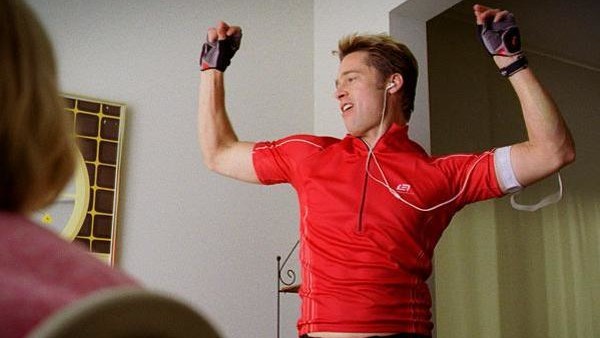
Seemingly another of the Coens' greatest frivolities, this star-studded though fairly small-scale production is rarely mentioned as one of their best. Even so, it's a hugely witty and entertaining affair, which in many respects is one of the most plausible conspiracy-based movies to have ever come out of Hollywood - the chief conspiracy being that, well, there is no conspiracy.
John Malkovich stars as a low-level CIA analyst with a drink problem and marital troubles, whose wife (Tilda Swinton) burns a CD of his financial records and various personal data for use against him in divorce proceedings. However, this CD accidentally ends up in the possession of Brad Pitt and Frances McDormand's dim-witted gym instructors, who assume it to be highly sensitive information with which they can blackmail the CIA for the money McDormand wants for plastic surgery.
Meanwhile, McDormand's lover - a US Marshall played by George Clooney - also gets caught up in proceedings, the web grows ever more tangled, and paranoid hijinks ensue. Much like any spy thriller, it's often hard to keep track of just what's going on in Burn After Reading. But that's the real joke: when all's said and done, basically nothing is going on, except that everyone is suspicious of everyone else. JK Simmons sums it all up perfectly as the CIA senior officer who looks as constantly bemused as anyone in the audience.
15. True Grit (2010)
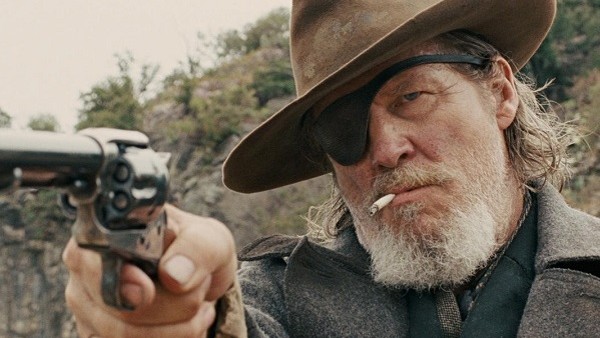
Another remake of a well-loved movie, and as such another instance of the material coming off as considerably less personal and recognisably Coensesque Even so, with its excellent performances and expert craftsmanship, True Grit is as fine a western as we've seen in recent years (and, surprisingly, we have had a few of late).
Jeff Bridges reunites with the Coens as the distinctly non-Dude-like US Marshall Rooster Cogburn, the role taken by John Wayne in the original. However, while Bridges shares top billing with Matt Damon's Texas Ranger and Josh Brolin's hunted criminal, it's really Hailee Steinfield who takes lead duties as the 14-year old girl who puts a bounty on Brolin for the murder of her father. Telling the story from her perspective brings the film closer to the original novel by Charles Portis, and the role puts a tremendous weight on Steinfeld's shoulders which she carries admirably.
Also admirable is the film's unflinching reflection of the attitudes of the day. Prejudice against women and Native Americans is clearly in evidence by Bridges and Damon on numerous occasions, and no excuses are made for this; our 'heroes' are by no means entirely heroic. True Grit also disperses with many old-fashioned romantic notions about living in the old West, with the arduous journey and harsh weather clearly taking its toll on the protagonists physically and psychologically.
All in all, True Grit just doesn't give us a great deal we haven't seen from innumerable other westerns in the past; but given how comparatively scarce westerns have been these past few decades, this is surely excusable.
14. The Man Who Wasn't There (2001)
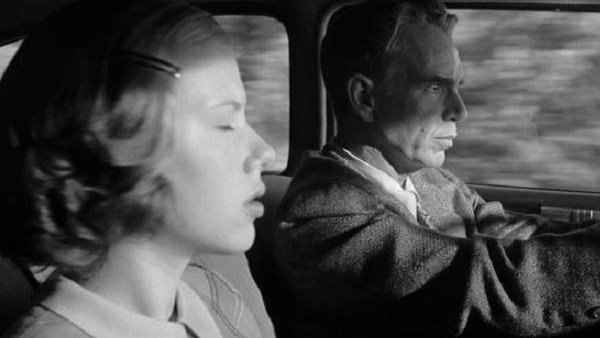
It has always seemed that the Coens feel a perhaps greater affinity for the cinematic conventions of decades gone by than those of the contemporary era; their preference for setting films in the past makes this readily apparent.
Never was this made more clear than in The Man Who Wasn't There, a take on the classic film noir format and their only film to date presented entirely in black and white (though intriguingly, it was actually shot in colour by esteemed cinematographer Roger Deakins, and transferred to monochrome in post-production).
Billy Bob Thornton does possibly his finest work as chain-smoking, softly spoken barber Ed Crane. To call his performance understated would be, well, an understatement; here we have a character who almost never displays any sign of emotion, despite the fact that he's dealing with the infidelity of his wife, and is plagued by ambition which ultimately leads him to murder. It's almost like Macbeth, if the protagonist was considerably less prone to monologues, and his goal was to invest in the dry cleaning industry rather than to take the throne of Scotland.
While it has plenty of the Coens' characteristic quirks (notably a curious UFO subplot). all in all The Man Who Wasn't There is one of their more sombre works, and certainly their most downbeat film of the early 2000s. All in all, though, it is very moving, and boasts great supporting turns from Frances McDormand, James Gandolfini, and a breakthrough role for a young Scarlett Johansson.
13. Blood Simple (1984)
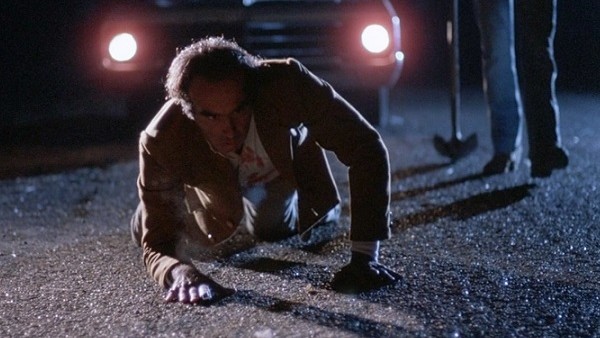
Time has perhaps been ever so slightly less kind to the low-budget, independently-produced debut feature from the Coen Brothers than their subsequent work. Yet as a hard-boiled film noir shot with overtones of 1980s horror, it's certainly among the most distinctive first films of its era, and remains very much of interest today.
Dan Hedaya and M Emmet Walsh are very much in their element as the disgruntled husband who knows his wife to be unfaithful, and the hired gun given the job of killing both her and her lover in revenge. Marginally less compelling are John Getz as the lover and Frances McDormand as the cheating wife; Getz is lacking a certain macho charisma for a gruff anti-hero role, and McDormand - while she would go on to greater things with the Coens - isn't given that much to work with here.
Still, it is a striking and atmospheric movie, somewhat grimmer than much of the work the filmmakers would come to make their name on. It's also nice to note that, from the very beginning, the Coens have remained loyal to many of their key collaborators: of course McDormand (also Joel's wife since 1984) has acted for them many times, and Carter Burwell has returned to provide the musical score for all but two of their movies.
Blood Simple was also the first film of Barry Sonenfeld, who served as cinematographer on the Coens' first three movies before becoming a director himself.
12. Hail, Caesar! (2016)
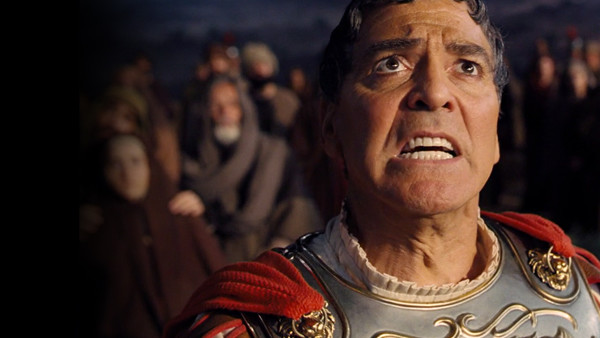
So great is their love for old Hollywood, it's almost surprising the Coens have never done a fully fledged musical. Hail, Caesar! doesn't necessarily fit into that category, but with a number of fully choreographed song and dance numbers, it certainly comes close. Above and beyond this, though, their 2016 film is as great a love letter to the early days of the studio system as we could ever hope to see, and its affection proves hugely contagious.
In addition, Hail, Caesar! gives us almost certainly the most sympathetic portrayal ever of a studio executive - a figure frequently written off as a hindrance, rather than a help to film-making - in Josh Brolin's Eddie Mannix, head of production at Capitol Pictures (the same fictitious studio featured in the Coens' earlier film Barton Fink).
The film follows Mannix over what we can assume to be a fairly typical day in the life, as he goes from meeting to meeting and set to set, constantly dealing with the many problems thrown at him by troubled and/or egocentric actors and directors - and all the while questioning the worth of what he does.
The Coens assemble another of their eye-catching star-studded casts featuring George Clooney, Scarlett Johansson, Ralph Fiennes, Tilda Swinton, Jonah Hill and a notably scene-stealing Channing Tatum. Still, for my money the film is stolen by Robert Picardo's early cameo as a disgruntled rabbi.
11. Inside Llewyn Davis (2013)
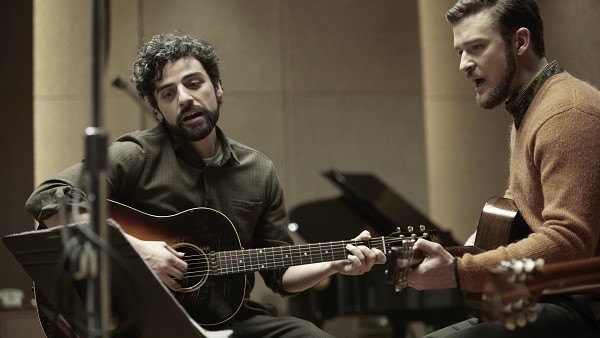
Often mentioned in the same breath as O Brother, Where Art Thou? thanks to its emphasis on acoustic folk music, this 2013 feature set in 1961 New York is in many respects closer in spirit to the Coens' Barton Fink in its portrayal of a once-esteemed artist anxious to remain true to his principles, but struggling to prevail in an unforgiving climate.
The Coens once again proved to be somewhat ahead of the curve in casting the now-ubiquitous Oscar Isaac in the title role, formerly one half of a renowned folk duo, and not enjoying the same success as a solo artist. While the music may be beautiful and uplifting, the film's portrayal of life as a jobbing musician is anything but, as through a combination of misfortune and his own personal failings, Llewyn Davis constantly finds himself unable to make ends meet.
It's a bittersweet journey, yet manages to end on a cautiously optimistic note. It's also a fair bit more grounded than many other Coens movies, and has some nice supporting performances from Carey Mulligan, John Goodman, Justin Timberlake, and a brief appearance by Adam Driver. Yes, even if it's for nothing else, future generations will remember Inside Llewyn Davis as the movie in which Poe Dameron and Kylo Ren record a song together; and a song about outer space, for that matter.
10. A Serious Man (2009)
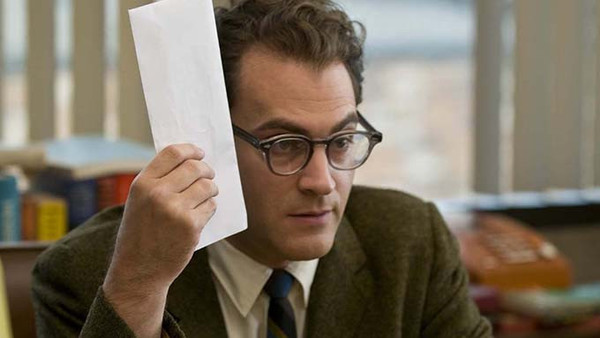
A real stand-out film in the Coens' filmography in many respects, A Serious Man also feels like one of their most deeply personal works, inasmuch as it is the film which delves most deeply into their Jewish heritage, exploring the midlife crisis of a mild-mannered Jewish academic in late 1960s suburbia.
At a glance, the most notable thing about A Serious Man is its lack of star casting. It's not hard to envisage a big name actor in Michael Stuhlbarg's role as physics professor Larry Gopnik, but the absence of recognisable faces is largely in the film's favour, helping to keep things very grounded and relatable, as Gopnik goes through the most trying times of his life.
His overbearing wife is suddenly demanding a divorce so she can marry an old friend, his teenage kids show him no respect, his man-child brother is sleeping on the couch, financial burdens are mounting, a student is trying to bribe him for a higher grade, and a question mark hangs over whether the university will grant him tenure.
A Serious Man brings to the surface the existential undertones which have been apparent throughout the Coens' body of work, as Stuhlbarg turns to his faith to help him through; but when he fails to find the answers he seeks, this leads him to question whether there really are any answers to be found. It's a compelling and emotional journey to be taken on, at times darkly hilarious but also profoundly sad, and all the more haunting for its somewhat open ending.
9. The Hudsucker Proxy (1994)
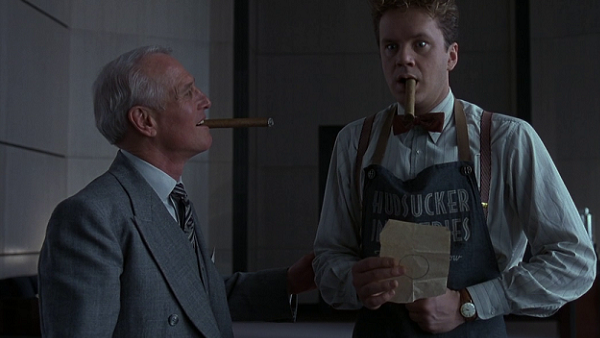
Perhaps the most ostensibly light-hearted Coen Brothers film, but still with more than a hint of darkness at its core, this old-fashioned comedy revives the once-popular rags-to-riches formula.
The Hudsucker Proxy follows Tim Robbins as simple-minded everyman Norville Barnes on his unexpected journey from corporate building mail boy to company president; but little does he realise he's merely a pawn in unscrupulous board member Paul Newman's plot to seize control of the company. However, things take a surprising turn when Norville's invention, the hula-hoop, proves an unanticipated success.
As the only PG-rated Coens movie, it's not surprising that this is surely their most upbeat work, even though the plot hinges on the suicide of Hudsucker's previous president. It's also among their most larger-than-life movies, which is clearly saying something. Tim Robbins plays the well-meaning buffoon to perfection, whilst Jennifer Jason Leigh gives one of her most unusual and endearing performances as a headstrong news reporter, expertly channeling the voice and mannerisms of a 1940s leading lady (what a Lois Lane she might have made...)
The Hudsucker Proxy also boasts one of the biggest name actors the Coens ever got to work with, in Paul Newman - although for a certain class of film fan, it's even more notable for being the Coens movie in which Bruce Campbell gets a significant speaking part.
8. Barton Fink (1991)
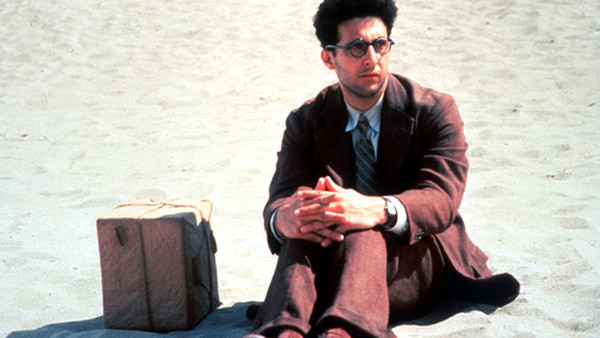
After his memorable supporting turn in Miller's Crossing, the Coens cast John Turturro in the title role of their follow-up feature. As difficult to classify as their work tends to be, Barton Fink is among their most fascinating oddities, blending dark humour, character-based drama, film industry satire and murder mystery, with elements of nightmarish surrealism which take it close to horror movie territory.
It's a perplexing and often unsettling film which provew hard to process, but is a compelling puzzle nonetheless. Turturro's ambitious yet strictly principled New York playwright, fresh from critical acclaim on Broadway, begrudgingly accepts a position as a staff writer in Hollywood, only to be assigned a wrestling movie.
Caring little for movies and knowing nothing of the subject matter, Fink faces a lot of hot air everywhere he turns; but the combination of his sweaty cheap hotel room, his burgeoning friendship with John Goodman's salt of the earth insurance salesman, and a dispiriting encounter with one of his favourite authors quickly leaves Fink doubting his place in this world - and as events take a turn for the worst, Fink is soon doubting his own sanity.
This was not the last time either Turturro or Goodman would work with the Coens, but these were the best roles the brothers had given either actor up to this point; their performances alone are enough to keep the film interesting. It's visually striking too, of course; this was the Coens' first collaboration with Roger Deakins.
7. The Ballad Of Buster Scruggs (2018)
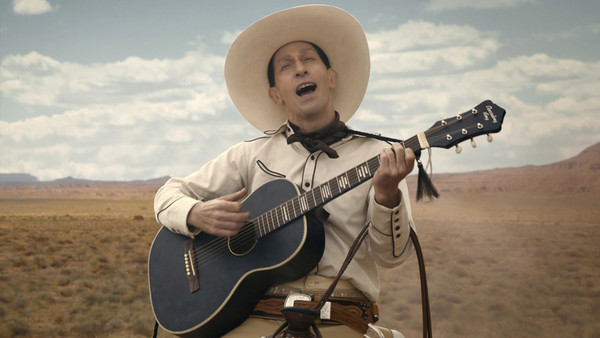
It might have been released on Netflix, but there's nothing that sets The Ballad Of Buster Scruggs apart as any sort of inferior Coen Brothers film. It's just different, which suits the release platform.
The film is essentially an anthology of vignettes, each telling a tale of the Old West - most of which are far more grim and bloody than about 90% of the Western genre. They're peppered with famous faces and incredible performances - particularly by Tom Waits (whose face looks it was hewn from the old stone he mines for gold in his segment) - and most of all they're an exercise in the directors showing off their eye for character and shots.
It all looks beautiful and the short stories all come heavily drenched in the Coens' signature dark ideas and pitch black humour.
6. Raising Arizona (1987)
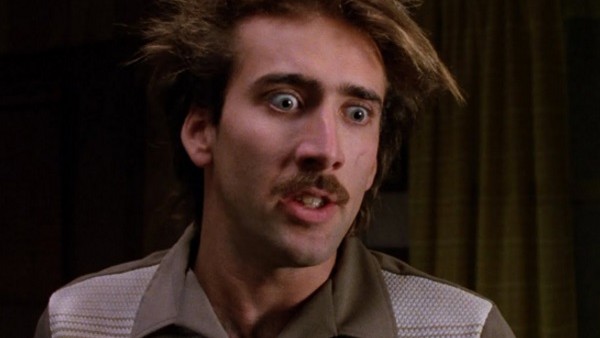
Their second feature film was arguably the one where something approximating a signature Coen Brothers style started to become evident. One of the most unorthodox yet endlessly entertaining comedies of the 1980s, this unique blend of rom-com and crime caper also served as a significant launchpad for burgeoning superstars Nicolas Cage and Holly Hunter.
Cage gives one of his definitive performances as HI, a talkative small-scale criminal whose constant trips to prison see him form a bond with Hunter's police officer Ed. Marrying after his latest stint ends, the couple are eager to start a family, but learn to their distress that Ed is infertile. Unable to adopt because of HI's criminal record, the couple decide to kidnap one of the five newborn babies of a local furniture tycoon.
Obviously, this arrangement is tricky enough; it only gets trickier when they're joined by John Goodman and William Forsythe as HI's recently escaped prison buddies, not to mention having a Mad Max-esque biker bounty hunter on their trail, It was on this film that the Coens' genre-bending ways really came into their own.
While clearly more upbeat than Blood Simple, Raising Arizona still deals with serious underlying themes of domestic harmony, adult responsibility and the struggles of would-be parents, as well as grander, fantastical elements with Randall 'Tex' Cobb's flame-spewing 'Lone Biker of the Apocalypse.' It often feels like a live-action Wile E Coyote cartoon, with its desert setting and energetic camera work (at times highly reminiscent of the Coens' friend and collaborator Sam Raimi's work on The Evil Dead).
5. Miller's Crossing (1990)
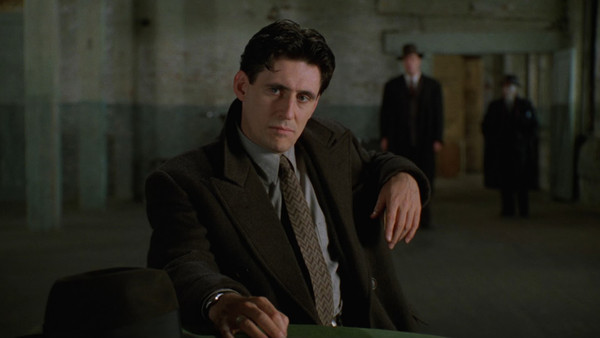
Another of their more grounded films, this prohibition-era crime drama not only ranks among the Coens' finest work, it's also one of the best gangster films of the era: no small claim, considering Scorcese's Goodfellas and Casino came later that decade. Gabriel Byrne heads up an excellent cast as Tom, a lieutenant to Albert Finney's mob boss Leo on the brink of war with Jon Polito's rival mob leader Johnny.
Complicating matters is John Turturro's corrupt bookkeeper Bernie; Johnny wants him dead, but Leo has sworn to protect him, as his lover Vera (Marcia Gay Harden) is Bernie's sister. Blood soon spills, the balance of power shifts quickly, and Tom is caught right in the middle; the fact that he's also having an affair with Vera doesn't help. Despite his criminal ways, Tom is inherently a decent man, but events will come to test his resolve.
While largely played straight, there's still room found for some signature Coens humour: Byrne's tendency to step through doors directly into a punch in the face is played for slapstick-ish laughs, and some of the tommy gun battles - notably an assault on Finney's home - are outrageously over-the-top.
Still, as a crime epic exploring themes of honour and loyalty, Miller's Crossing definitely ranks among the best of them, and the woodland scenes boast some of the Coens' most iconic shots.
4. O Brother, Where Art Thou? (2000)
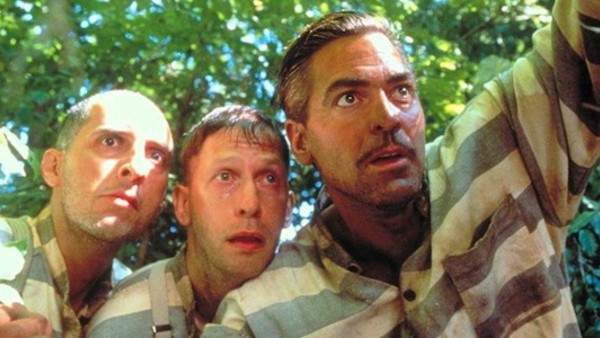
Surely the most grandoise production the Coens had worked on as of 2000, O Brother, Where Art Thou? proved a landmark film on a number of levels. Not only did it mark the Coens' first collaboration with George Clooney, with whom they would reunite with on a further three films (to date); it also sparked a widespread resurgence of interest in bluegrass music, thanks to its best-selling, Grammy-winning soundtrack.
A bizarre epic, it broadly retells The Odyssey in Great Depression-era Mississippi, with Clooney, John Turturro and Tim Blake-Nelson as a trio of jailbreakers who have all manner of oddball misadventures whilst travelling across the wilderness. Whilst many of the figures they cross paths with have some roots in Homer's tale, notably the singing Sirens and John Goodman's cyclops, O Brother, Where Art Thou? is equally rooted in elements of American history which have since passed into legend, including a friendship with a blues man who claims to have sold his soul to the devil for his guitar skills, and a run-in with a wannabe famous bank robber.
Perhaps above all else, O Brother, Where Art Thou? is almost certainly the Coens' most visually sumptuous work. It is notable for being one the first non-special effects based films to make extensive use of CG elements, the sepia look achieved via digital colour correction.
3. No Country For Old Men (2007)
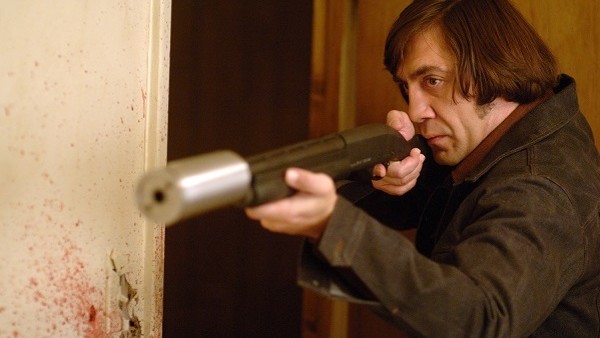
Oftentimes, when a filmmaker (or, as in this case, filmmakers) long snubbed by the Academy finally gets the big two Oscars - Best Director and Best Picture - the film in question isn't necessarily one of their best. No Country For Old Men is a very clear exception to this rule, and as an adaptation of a Cormac McCarthy novel, it also demonstrates that, contrary to my earlier arguments, the Coens can still produce exceptional work whilst handling material that is not exclusively of their own creation.
At heart a modern day western (well, set in 1980, but that's modern enough), Josh Brolin makes an auspicious Coens debut as an unemployed Vietnam veteran who chances upon the blood-spattered scene of a drug deal gone wrong, where he finds a case full of money which he decides to take.
This turns out to have been a bad idea, as he soon has Javier Bardem's professional (though somewhat deranged) hitman on his tail. For investigating lawman Tommy Lee Jones, the case may prove too much to bear. Whilst the Coens may have slapped a slightly zany wig on Bardem, the humour that typically permeates their work is considerably downplayed in favour of intense atmosphere and suspense.
The existential anxiety that comes up time and again in their films is especially acute here, particularly as it ends on a seemingly inconclusive note with little sign of hope (much like A Serious Man would do later). Unnervingly bleak, No Country For Old Men is one that really stays with you, and richly deserved its Oscars, also picking up Best Adapted Screenplay for the Coens, and Best Supporting Actor for Bardem.
2. Fargo (1996)
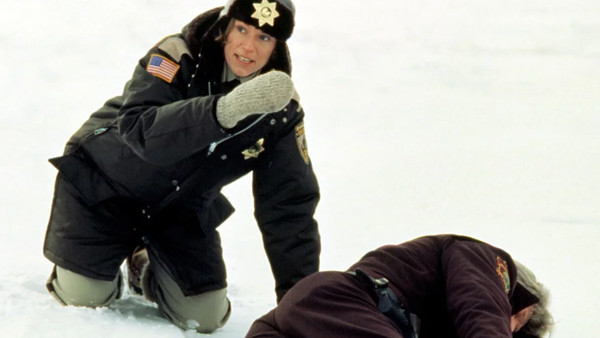
As may be apparent when listing the Coen Brothers' films in this manner, you can more or less break them up into tragedies and comedies, Shakespeare-style. From this perspective, one might hope to class Fargo as a history, given its opening titles declare it to be based on real events.
However, in a move that can only be classed as Coensesque, this was an outright lie, although it has been claimed that a number of real-life crimes inspired the script. In any case, Fargo is a masterful blend of the comic, the tragic, and the horrifically violent, and is quite rightly looked back on as one of the finest crime films of the 1990s.
Set in the Coens' home state of Minnesota (complete with exaggerated accents), it's another neo-noir tale of an ostensibly well-meaning but ineffectual small businessman played by William H Macy, who hires criminals Steve Buscemi and Peter Stormare to kidnap his wife in order to extort money from his wealthy father-in-law.
Naturally, things don't go according to plan. The key reason Fargo proves so effective is the manner in which it emphasises just how ordinary its main protagonists are - Macy's car salesman, Frances McDormand's small town sheriff - which only serves to make the violent crimes that ensue all the more shocking. The snow-strewn setting makes for some hugely striking and memorable imagery, and the cast all give some of the best performances of their respective careers.
The film proved a particular career highlight for McDormand, who was named Best Actress at the 1997 Oscars.
1. The Big Lebowski (1998)
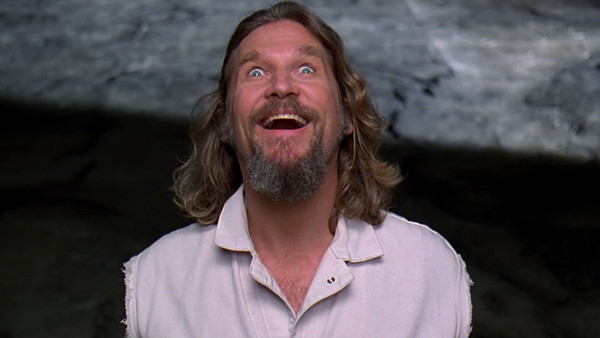
As wonderful as their whole body of work is, there was never really any doubt as to which film would have to come in at number one. The Big Lebowski is surely the most iconic, memorable film the Coen Brothers have ever made. With its colourful characters, settings and dialogue, it's certainly the most cult-friendly (and quotable) of their movies, but it would be a mistake to dismiss it as nothing more than a fan-pleasing exercise.
It's without doubt one of the greatest, most artfully realised comedies of all time, with a sophisticated sensibility underlying even its crassest gags. In typically genre-bending fashion, the Coens tell a Raymond Chandler-esque detective story in an almost-contemporary setting (early 90s this time), following Jeff Bridges in his best-loved role as middle-aged hippy layabout Jeffrey 'The Dude' Lebowski. The Dude's life consists mainly of lounging around and going bowling, until a case of mistaken identity gets him embroiled in the affairs of his namesake, a local millionaire (David Huddleston), whose young trophy wife (Tara Reid) has mysteriously disappeared.
Almost unwittingly turning into a private investigator, the Dude's misadventures see him cross paths with pornographers, performance artists and militant nihilists. However, the plot is only a small part of the draw to The Big Lebowski (indeed, much the same can be said of all the Coens' films). The real joy is in the interplay between the beautifully drawn characters, and never has there been a better double act in the Coens' filmography than Bridges' Dude and John Goodman's Walter.
While it would almost seem to defy belief that two such dissimilar men - one a laid-back pacifist, the other an uptight, right wing Vietnam veteran - would be best friends, the two characters bounce off one another so well it's almost poetic. Bridges and Goodman have never been better, and it's little surprise that both actors have declared it to be their favourite film they've ever done.
In common with other Coens movies, the film quietly tackles an underlying existential angst, and is not without its bleak and tragic moments, but it remains their most endearing film for its underlying optimism. It's not entirely surprising, then, that the film has inspired a religion, Dudeism, dedicated to the philosophy of taking it easy and going with the flow; a holy doctrine which many of us can get on board with, I should think.
How would you rank the Coen Brothers filmography? Will this ranking stand? Let us know in the comments section below,